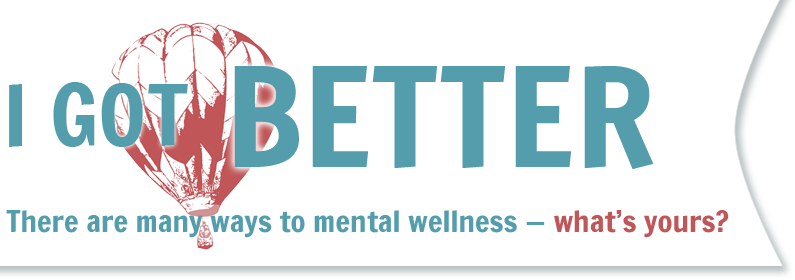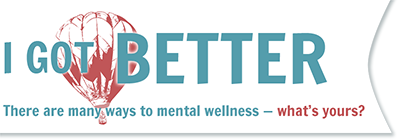Numbness Never Gives You Meaning or Hope
By Peter

During your mental health care, have you often felt hopeful about your chance of getting better?
Yes. I read accounts of people who have recovered after being diagnosed with Schizophrenia. My own experience on medication seemed hopeless, but I was determined not to give up, and chose to risk the stigma of being “uncompliant”, and the rough ride of worsening psychosis and mania when tapering off neuroleptics in order to try a non medicated approach.
During your mental health care, have you often felt hopeless about your chance of getting better?
Yes. The sensation of incapacity and confusion while on neuroleptics was devastating to my sense of worth and I had no ambition or interest in anything. It was a living death. Suicide promised relief from the inescapable sense of emptiness. My psychiatrist told me that I was very ill, and that the medicine could not be causing my psychosis. That made me really angry and distrustful of the psychiatric profession, and kick-started my search for an alternative.
Has a mental health provider ever told you that you could not reach a personal goal because of your psychiatric diagnosis (for example, education, career, independent housing, relationship, children, etc.)?
No. Not explicitly, but my psychiatrist showed disapproval for my determination to study academic and research texts on bipolar disorder and psychosis while in hospital and on Paliperidone. She knew my cognitive functions would take a knock on the drug, it seems.
If you overcame hopelessness that you could get better from a mental health or emotional problem, was there a turning point for you?
It came about in two ways. The first was when I eliminated the drugs that were causing me such cognitive incapacity and avolition. The second was probably pre-emptive of the first, and was the accounts by various people who maintained that there could be recovery off drugs.
Tell us what recovery means to you. How would you define recovery from mental health or emotional problems in your own words?
Recovery to me means being able to function adequately in my marriage as a husband, and as an actively supportive father to my children. It includes overcoming my life long social inadequacies, and most importantly, to be able to earn a reasonable living. It means being able to make a meaningful and reliable contribution to the lives of others.
If you could send a brief message to someone receiving mental health care today who is feeling hopeless about getting better, what would you say?
The trouble with the term “mental health care” is the last two words are frequently false advertising and are costly to your physical health. If you are relying on psychiatric drugs and are feeling empty and hopeless, remember they aren’t just pain killers – they are often emotion and motivation killers. Numbness never gives you meaning or hope. Look for help from someone who is concerned about the meaning of your suffering, and cares enough to help you work through it.
Can you give examples showing you have gotten better from a mental or emotional problem, such as how you are doing well or accomplishing goals you have chosen?
I don’t find myself contemplating suicide very often anymore. I give people hugs, and don’t fear that they are plotting evil against me. I’m making better headway with reading and remembering key arguments. I’ve been enthusiastic about my prospects for re-opening my business and have been putting together a business strategy. I’m becoming less impulsive. I still get angry, but respond with more restraint and am getting better at managing my triggers. I have made some life choices about the sort of work that is wise for me to take on, and what I should best steer away from, in order to keep my meaning high and stress down.


